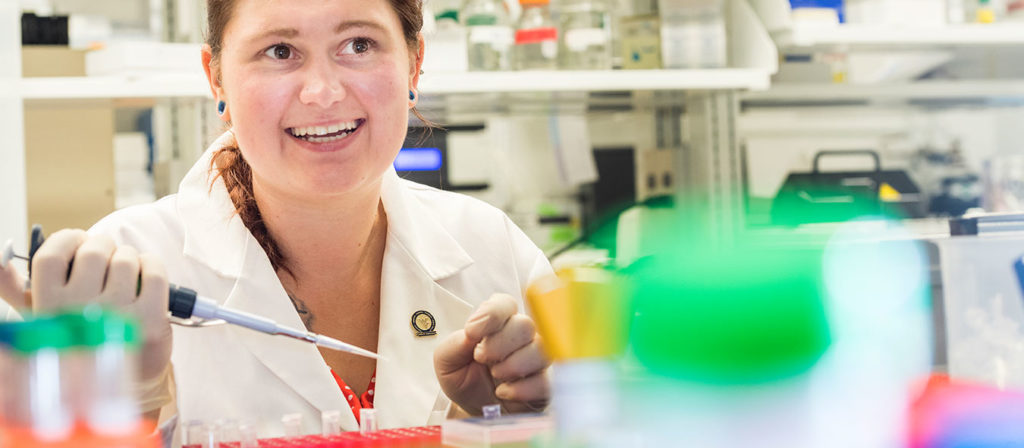Conventional diabetes medications tend to fix downstream problems, meaning they typically work by stabilizing blood sugar levels, not by improving the chemical processes that underlie how the body makes and processes blood sugar in the first place. A West Virginia University graduate student is working to change that by studying an unexplored enzyme.
“It is like having a car that is leaking antifreeze, but instead of fixing the leak, you just keep buying cases of antifreeze and refilling the engine” said Stephanie Shumar, a graduate student in WVU’sSchool of Medicine who is studying biochemistry and molecular biology.
The National Institutes of Health has awarded her $88,000 for a two-year investigation into how one enzyme, called Nudt7, regulates coenzyme A levels and glucose production in the liver. High concentrations of coenzyme A in the liver can trigger a surge in the production of blood sugar, whereas low concentrations can cause blood sugar to plunge.
Shumar says that a couple of papers have been written about the enzyme at the center of her work, but not much is known about it or its role in regulating coenzyme A and blood sugar levels. “We are very excited about this project and the potential therapeutic applications”.
By focusing on an enzyme that regulates glucose production, instead of on glucose itself, Shumar hopes to provide a knowledge base on which new medications that target coenzyme A can be built. Such medications may have a broader impact on diabetics’ health, alleviating multiple complications at once and getting closer to treating diabetes itself, rather than just its symptoms.
“A lot of times, people who are diabetic also have cardiac problems, eye problems—all types of problems,” Shumar said. “But the underlying problem starts with the diabetes, which leads to other issues. Whenever you take medication for your eye problems or your heart problems, you’re still diabetic.”
Given that diabetes is the leading cause of adult-onset blindness, the leading cause of kidney failure and the seventh-leading cause of death in the U.S., research like Shumar’s, in support of “upstream” diabetes treatments, may have dramatic “downstream” effects on diabetic patients’ well-being.
Research reported in this publication was supported by the National Institute of General Medical Sciences of the National Institutes of Health under Award Numbers F31GM126838 and R35GM119528. The content is solely the responsibility of the authors and does not necessarily represent the official views of the National Institutes of Health.
(From Tara Scatterday for WVU Today. Photos from West Virginia University Photo)
